Oleh K. Romanchuk. On peace negotiations, victory and capitulation
«War is an act of violence and its
use knows no bounds;
each of the fighting parties sets the rules for the others…
«War is a dangerous thing. Therefore, complacency in it is unacceptable.»
Karl von Clausewitz
The Istanbul simulacrum against the backdrop of global redistribution of the world
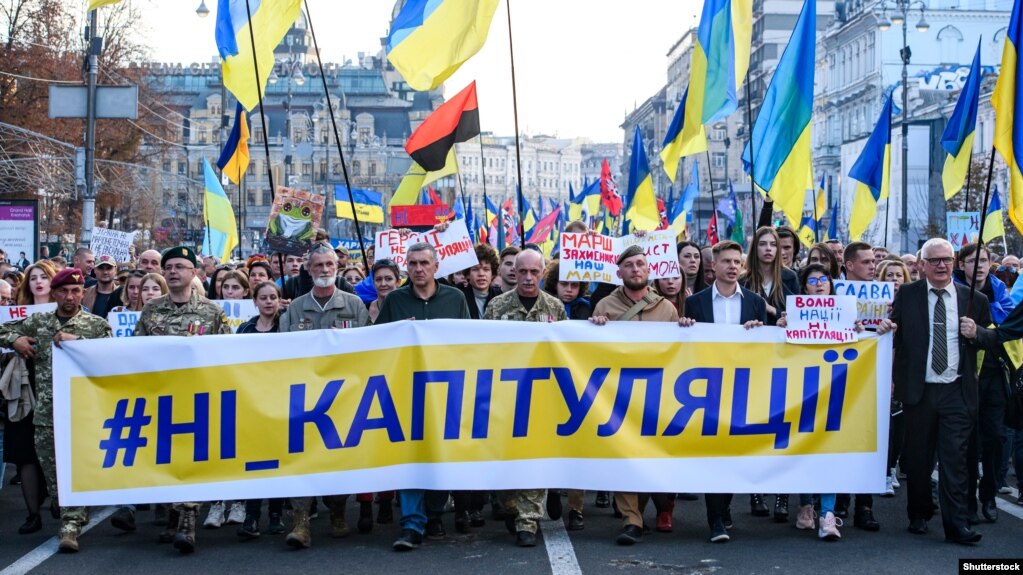
From Wikipedia we learn that a war can end with the unconditional surrender of one of the opponents, a peace treaty that partially satisfies the parties participating in the war, or the complete occupation of the territory of the country against which aggression has been committed.
Nowadays, even generative AI provides a fairly precise definition of the concepts of «capitulation», «peace treaty», «occupation»: «Capitulation: If one of the parties recognizes that it can no longer continue the war, it can capitulate. That means that the party recognizes itself as defeated and is ready to cease hostilities; Peace treaty: After a certain period of hostilities, the parties to the conflict may decide to end the war and conclude a peace treaty, which will determine the conditions for the cessation of hostilities and the distribution of victories and territories; Occupation: A possible scenario when one side completely occupies the territory of another country. This can mean both: a complete regrouping of forces and the cessation of hostilities, however, the question of the further political situation in the occupied territories remains.»
Analyzing pauses in military operations, the famous military theorist Carl von Clausewitz, in his treatise «The Nature of War» – models of strategic thinking – emphasized: «A pause in military operations, strictly speaking, would contradict the very nature of the matter, because the two opposing armies, as two hostile elements, must continuously destroy each other, just as water and fire can never be in a state of equilibrium, but will act on each other until one of these two elements completely disappears.»
However, even to an outside observer/listener/reader, these quasi-diplomatic chatter seemed more like a political circus, a simulacrum , or a farce than a full-fledged international negotiation . The success of the much-advertised talks was not helped by the fluency from Ukrainian to Russian and vice versa.
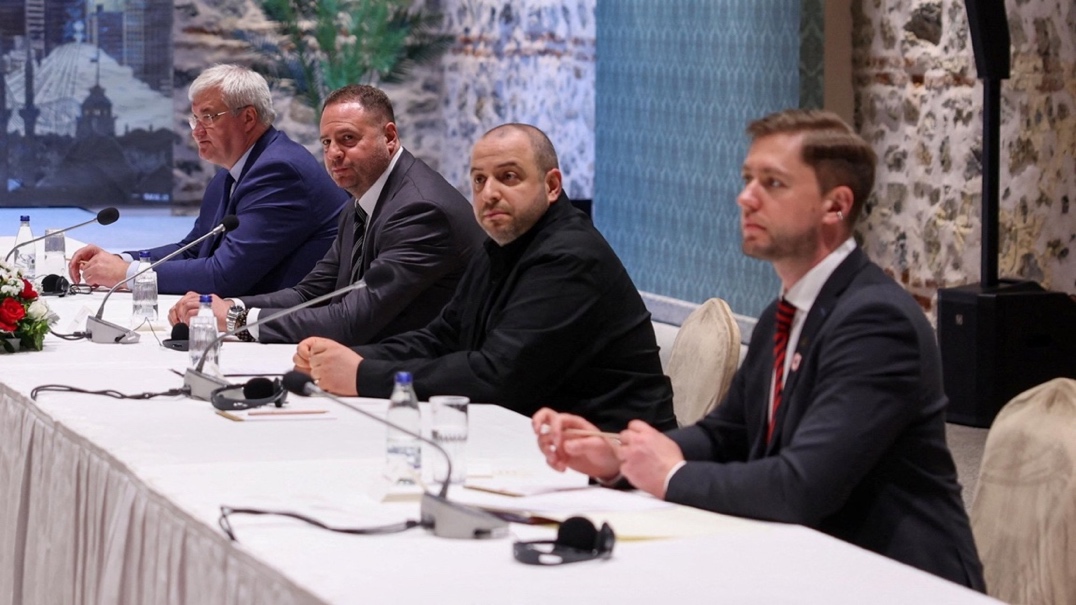
Istanbul-2025
The Prussian officer was right. Thus, the Minister of Defense of Ukraine , Rustem Umerov, who headed the Ukrainian delegation in Istanbul, declared that Ukraine was ready for direct negotiations at the highest level to find «real paths to a sustainable and just peace,» and that peace was possible only on condition that Russia showed readiness for concrete actions, including a complete ceasefire for at least 30 days and the implementation of humanitarian steps, such as the return of forcibly deported Ukrainian children and exchanges of prisoners of war on an «all-for-all» basis.
At the same time, Volodymyr Zelenskyy clarified: «Ukraine is ready to take all realistic steps to end this war. I call on Putin to give his delegation real powers. During the day, I will inform everyone about what is happening in Istanbul and whether there is a chance that the Russian delegation will take real steps to stop the killings and end the war.»
On February 2, 2025, in an interview with the Associated Press (https://apnews.com/article/russia-ukraine-war-trum... ) , the President of Ukraine stated: « We are fighting, we are holding on, we are doing everything to bring peace closer. And today, more than ever in these three years of war, we are close to it (?! – O. R.). <…> We must do everything to restore stability and ensure a just peace for all Ukrainians.»
As we can see, the Ukrainian authorities have not yet learned to call things by their proper names. Traditionally forgotten advice of the famous Rene Descartes: «Specify the meaning of words, and you will save humanity from half of its errors.» Indeed. What kind of concept is this – «a stable and just peace»? What does the Ukrainian president put into the phrase «ending this war», «putting an end to the war», «we, more than ever during these three years of war , are close to it (peace. – O. R.)» and does not explain what will happen to the occupied territories? Meanwhile, the Russian delegation stubbornly demanded/ is demanding from Ukraine the withdrawal of troops «from «its territory» to ensure a ceasefire (https://www.unian.ua/live/peregoviry-u-stambuli-on... ).
Expecting a «just peace» from Putin is a thankless task – even the humanistic demand of the Ukrainian side to implement The exchange of prisoners of war according to the formula «all for all» was not fully implemented.
Expect to finish of the Russian-Ukrainian war or even to its suspension is naive. In our case, the so-called negotiation path leads to the continuation of negotiations with Moscow , which is stubbornly trying to obtain from Ukraine official consent not to even plan to return the occupied territories by military means in the future. And the slightest attempts by the Ukrainian side to return the occupied lands by diplomatic means will be politically assessed as a manifestation of revanchism. That is, we are talking about the unconditional surrender of Ukraine, about the cessation of resistance to aggression.
Imagine that along the entire length of the front (which is over 1000 km) there will be a ceasefire and the invader will retreat to the 1991 border line naively. There will be no idyllic picture.
The fundamental problem is that Russia wants to get what it has no right to, and Ukraine cannot return yours by military means. U.S. Secretary of State Marco Rubio announced in the Senate Foreign Relations Committee: «Here ‘s what we can agree on: there is no military solution to this crisis. And we must end it through negotiations. And the fundamental problem that we face in Ukraine is this: Russia wants to get what it doesn’t have and has no right to. And Ukraine wants to get what it can’t get back militarily.»
A drastic question arises: to save territories or people? The statements of the Supreme Commander-in-Chief that Ukraine is currently unable to regain the occupied territories by force of arms due to the slowdown in foreign aid, due to mobilization problems, corruption and underfunding of the defense industry, etc., are only part of the cruel truth. In essence, we have tacit consent to the refusal of armed deoccupation of Ukrainian territories in the future. According to this logic, another disarmament of Ukraine looms at the brutal demand of the Russian Federation.
Zelensky’s 30 promotional security agreements and beautiful photos with a coalition of the willing and determined do not bring peace closer. Security guarantees are not spelled out in the much-hyped minerals agreement. Should we count on help from Western European countries? The 17th package of sanctions against Russia, targeting about 200 shadow fleet vessels, recently approved by the EU, is a good help to Ukraine, but it is not enough.
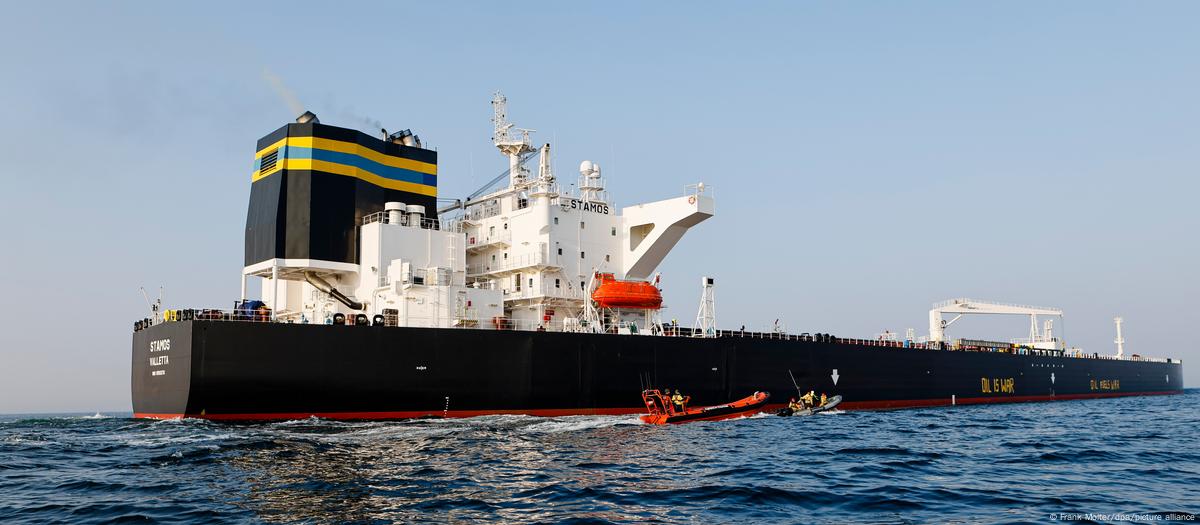
Russia’s « Shadow Fleet « is the main target of the 17th package in the EU’s sledgehammer against Russia Photo: Frank Molter/dpa/picture alliance
Former Lithuanian Foreign Minister Gabrielius Landsbergis was quite skeptical about the results of the decisions made by the «coalition of the willing» regarding assistance to Ukraine. So , in his article « The Coalition of the Willing to Do What?» (https://landsbergis.com/the-coalition-of-the-willi... ) , the politician drew attention to the following: « For example, we have heard a lot about the thousand ships of the so – called shadow fleet of Russia. And after months of negotiations , Europe managed to agree on sanctions against less than 200 ships. Add that to the 100 ships that were previously sanctioned, and we are quickly approaching 300! Out of a thousand. That means 700 ships are still sailing from St. Petersburg to wherever they want to go – carrying Russian oil and bringing back yuan, rupees or whatever currency their buyers use. And that means the Russian treasury is still filling up with money. <…> Although we have heard many words and read many announcements since J.D. Vance’s attack in Munich , there are no troops in Europe, almost no weapons, no frozen assets, no air defenses, no crippling sanctions, no accession, no new tariffs, and no Taurus. So, what’s really going on? What worries me is that the answer is «nothing.» Or maybe it’s worse. Maybe that’s the plan. Maybe no one is «willing» to do more than just say they’re willing. <…> For those who are trying to find a way to fulfill their promises to support Ukraine, I have a question: have you actually tried to support Ukraine?»
A timeline of cynicism
As is known, a full-scale invasion of the Russian Federation to Ukraine was preceded by Putin’s statements e.g. «denazification of Ukraine «, its demilitarization, in other words, deprivation of Ukraine’s independence and autonomy, change of power. Subsequently the Russian Federation has decided to include five regions of Ukraine in its composition – Crimea, Donetsk, Luhansk, Zaporizhia and Kherson regions. According to the Russians, in order for the fire to cease, Ukrainian troops must withdraw from these territories.
On May 16, the head of the Russian delegation in Istanbul, Volodymyr Medinsky, voiced the same demands – a significant reduction of the Armed Forces of Ukraine, a ban on having certain types of weapons, a solution to the issue of the Russian Orthodox Church in Ukraine, a solution to the issue of the Russian language, etc. Is it possible to negotiate with the Muscovites on such terms ? The question is rhetorical.
Serhiy Kyslytsia, First Deputy Minister of Foreign Affairs, a member of the Ukrainian delegation at the negotiations with the Russian Federation in Istanbul, said that the Russians resorted to constant threats and immoral statements: «The amount of trash, threats, cynicism and immoral statements – it was almost a continuous stream. You have already heard about some long pseudo-historical excursions, about the fact that «today we demand 4 regions, tomorrow we will demand 8 or 6», about the fact that «some of the members of the delegation here may lose more relatives». Or, for example, at some stage the head of the Russian delegation says: «In essence, war is when Russians kill Russians, with certain nuances». In essence, that side denies your existence as a nation, they say to your face: «You are not Ukrainian, you are Russian, we are just killing you, Russians are just killing Russians».
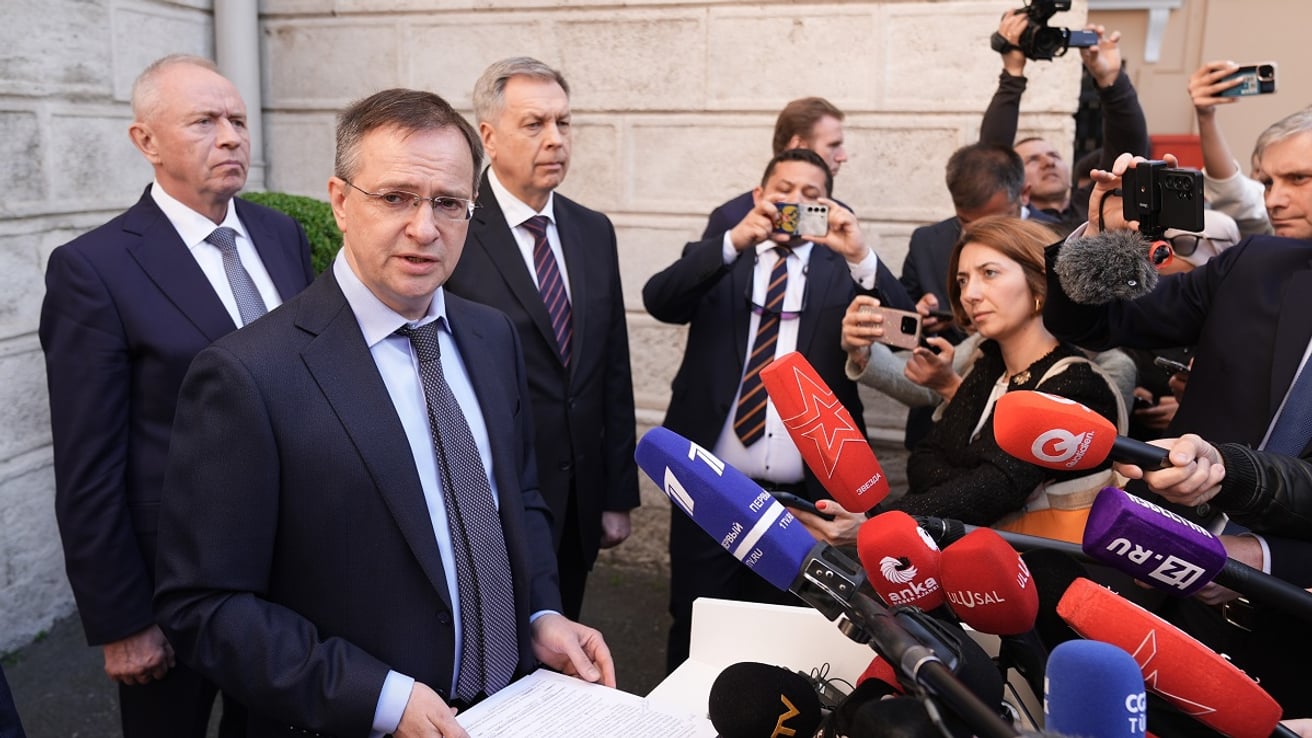
«We don’t want war, but we are ready to fight for a year, two, three – however long it takes. We fought with Sweden for 21 years. How long are you ready to fight?»- Medinsky resorted to brutal threats. Caught plagiarizing dissertations and falsifying scientific achievements, this unfortunate scientist keeps quiet about the fact that the Northern War, initiated by Peter I, cost the new empire about a quarter of its then population. It is not for nothing that the Russian historian Vasily Klyuchevsky characterized the army of Peter I as a «mortuary». Thus, as if reminding that for the sake of an ephemeral goal, the new «Lubyanka oprichniki» with degenerate neo-imperial barefoot are ready to trample their compatriots to death and completely destroy their own economy.
In April 2023, he cynically stated: «We do not have a conflict with Ukraine. We, unfortunately, have a conflict of traditional colonialists, who have built successful colonial empires for centuries, with a territory that did not want to be a colony.»
This year, on May 18, Putin told the he told Russia 1 journalist Pavel Zarubin: «There are enough forces and means to bring what was started in 2022 to a logical conclusion with the result necessary for Russia. This result is the elimination of the causes that caused this crisis, the creation of conditions for a long-term sustainable peace and ensuring the security of the Russian state, ensuring the interests of our people in those territories that we always talk about, and where people live who consider Russian their native language and consider Russia their homeland.»
A day before this strategic revelation, the deputy chairman of the Russian Security Council, Dmitry Medvedev, traditionally resorted to threats on the social network X: «All enemies of Russia who put forward ultimatums about negotiations should remember one simple thing: peace negotiations by themselves do not always lead to the end of hostilities. Unsuccessful negotiations can lead to the beginning of a more terrible stage of the war with new weapons and participants.»
According to The New York Times (https://www.nytimes.com/2025/05/20/us/politics/trump-ukraine-russia.html ), after a May 19 conversation with his Russian counterpart, it looks like Donald Trump refused to join the European push to impose new sanctions on Russia. In a conversation with Volodymyr Zelenskyy and European leaders, the American president said that Russia and Ukraine must find their own solutions to the war. It is not worth hoping that Trump will move forward with Senator Lindsey Graham’s bill on new anti-Russian sanctions.
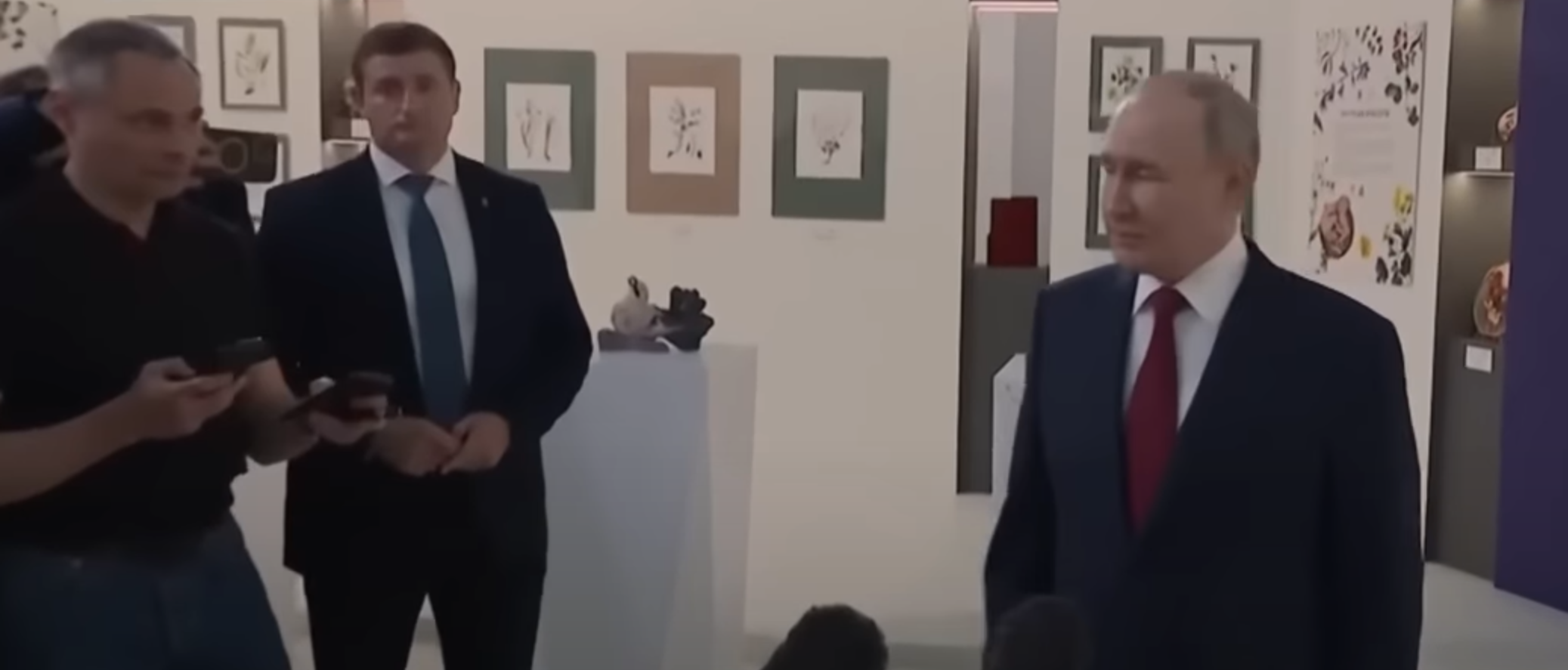
After talking with Trump, Putin went out to the journalists. The cynicism of the Lubyanka pupil was off the charts: «First of all, I thanked the President of the United States for the US support for the resumption of direct negotiations between Russia and Ukraine on the possible conclusion of a peace agreement. The President of the United States expressed his position on the cessation of hostilities and a ceasefire. For my part, I also noted that Russia also supports a peaceful resolution of the Ukrainian crisis (We have a typical example of a deliberately distorted formulation – he Russian-Ukrainian war is stubbornly referred to as the «Ukrainian crisis.» – O. R.). We must simply determine the most effective ways to move towards peace. We agreed with the President of the United States that Russia will propose and is ready to work with the Ukrainian side on a memorandum on a possible future peace treaty with the definition of a number of positions such as, for example, the principles of regulating the terms of a possible conclusion of a peace agreement and so on, including a possible ceasefire for a certain period of time in the event of reaching appropriate agreements. By the way, contacts between the participants in the meeting and negotiations in Istanbul have been resumed and this gives reason to believe that we are generally on the right track. The question, of course, is that the Russian and Ukrainian sides should show maximum desire for peace and find those compromises that would suit all parties. At the same time, I want to note that in general Russia’s position is clear. The main thing for us is to eliminate the root causes of this crisis.
In other words, there will be no ceasefire until the « root causes of the crisis « are eliminated. Namely: confirmed guarantees of Ukraine’s neutral status, its rejection of NATO, rejection of Western military assistance, weakening of Ukrainian identity, and preservation of control over occupied territories.
On May 19, after a phone call with the Russian dictator, Donald Trump said that «Russia and Ukraine will immediately begin negotiations on a ceasefire and, more importantly, an end to the war. « It sounded like a fait accompli. Quite in the style of the American president. Instead, Putin rejected an unconditional ceasefire . He said, this is possible only after reaching appropriate agreements. According to the dictator, the Russian Federation and Ukraine must find compromises that satisfy both sides. Quote: «We must determine the most effective ways to move towards peace. We agreed that Russia will propose and is ready to work with the Ukrainian side on a memorandum on a possible future peace treaty, defining a number of positions, such as the principles of settlement, the terms of a possible conclusion of a peace agreement, including a possible ceasefire for a certain period of time if an appropriate agreement is reached.»
On the same day, the Ukrainian president gave a briefing during which he stated that Ukraine would not agree to conditions that would require the withdrawal of troops from its territories: «No one will withdraw our troops from our territories. This is my constitutional duty. This is the duty of our military – to defend the sovereignty and territorial integrity of Ukraine. Yes, there are currently temporarily occupied territories – due to the aggression of such a large country. This is understandable. But no ultimatums, and no one will surrender their land, their territories, their people, their homes.» And further: « We are considering the possibility of a meeting of all teams. We want to organize it at a high level. The United States, Ukraine, Russia, some representatives of the EU and the United Kingdom. Such a meeting could take place in Turkey, the Vatican or Switzerland.»
It is not entirely clear – «no one will withdraw our troops from our territories.» It seems that about 20 percent of the territory occupied by the enemy is being taken «out of the brackets.»
On May 20, exactly one day after Trump’s phone call with Putin, the Financial Times published an article with the telling title «Has Donald Trump abandoned Ukraine? (https://www.ft.com/content/3af7c85c-b268–4e27–845d-8a521092ef7e ). The newspaper noted that « the [US] president , who promised to end the war in Ukraine on the first day of his second term, seemed to have washed his hands of those efforts and left Ukraine at the mercy of its invader . « Later, during a telephone conversation with European leaders, Trump not only made it clear that he was walking away [from the negotiation process], but also that he had no intention of putting additional pressure on Moscow while bilateral talks between Russia and Ukraine were ongoing.
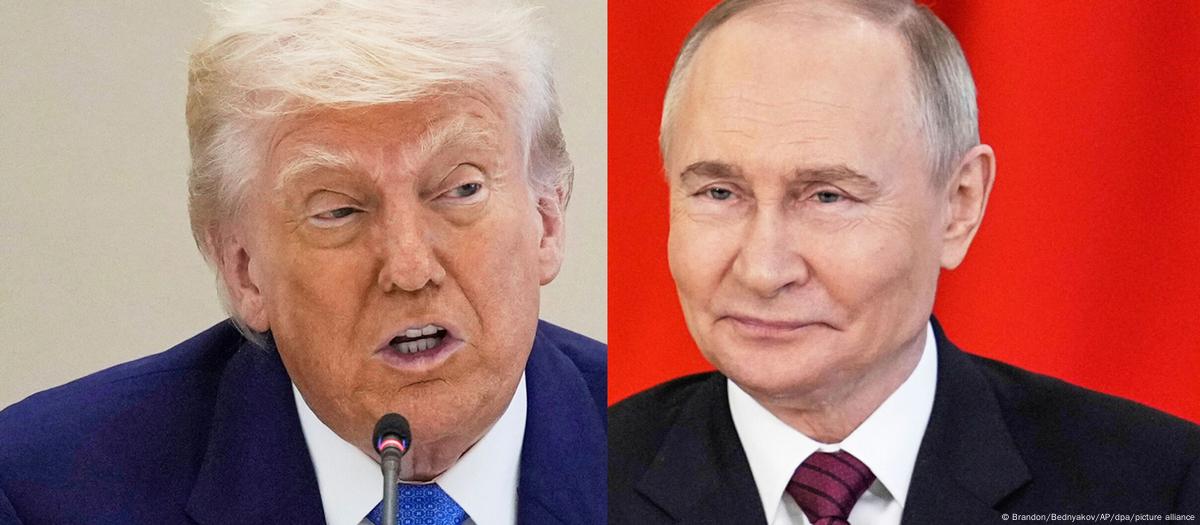
Photo: Brandon/ Bednyakov/ AP/ dpa/ picture alliance
«This conversation with Trump was a victory for Putin,» said Steven Pifer, a former U.S. ambassador to Ukraine who now works at Stanford University’s Center for International Security and Cooperation. «He made it clear that there wouldn’t be any ceasefire anytime soon, so Russia could continue the war. And no additional sanctions would be imposed anyway.» William Taylor, the U.S. ambassador to Ukraine from 2006 to 2009, agreed: «The Russians will hold low-level talks, exchange various documents, and in the meantime, continue the fight.»
It should be noted that on May 19, Putin declared Russia ‘s readiness to work with Ukraine on a memorandum that would set out «the principles of settlement, the terms of a possible peace agreement, and a potential ceasefire for a certain period» if certain agreements were reached. At the same time, Kyiv knows absolutely nothing about the aforementioned «memorandum.» Associations with the ill-fated Budapest Memorandum involuntarily arise.
Politico (https://www.politico.com/news/2025/05/20/us-waiting-for-russian-peace-proposal-rubio-says-00360137 ) writes that in the opinion of the Americans (at least Rubio stated it), «the Russians are going to write the conditions that they will demand in order to achieve a ceasefire, which would then allow for broader negotiations. Some kind of chimera. This is just a prolongation of the war by the aggressor.
On May, 21 Bloomberg (https://www.bloomberg.com/news/articles/2025–05–21/russian-advance-in-ukraine-is-slowing-despite-putin-s-confidence ) recalled that after a conversation with Putin, the American president made it clear to his allies that he was confident in Russia’s victory. Trump is demonstrating indifference to Russia’s aggression and is taking a course towards normalizing relations with Moscow. And US Secretary of State Marco Rubio cannot clearly answer the question of whether he considers Vladimir Putin a war criminal – they say, it is a «complicated» question. According to this logic, the Moscow filth may soon come to Ukrainians with arms around them, telling them that they «didn’t understand it that way.»
It is noteworthy that in February at the United Nations General Assembly, the United States and Russia voted against a resolution condemning Russian aggression against Ukraine. Through the UN Security Council, the United States passed its resolution without accusations against Moscow, without words of support for Kyiv, limiting itself to banal calls for peace.
About negotiations that don’t work
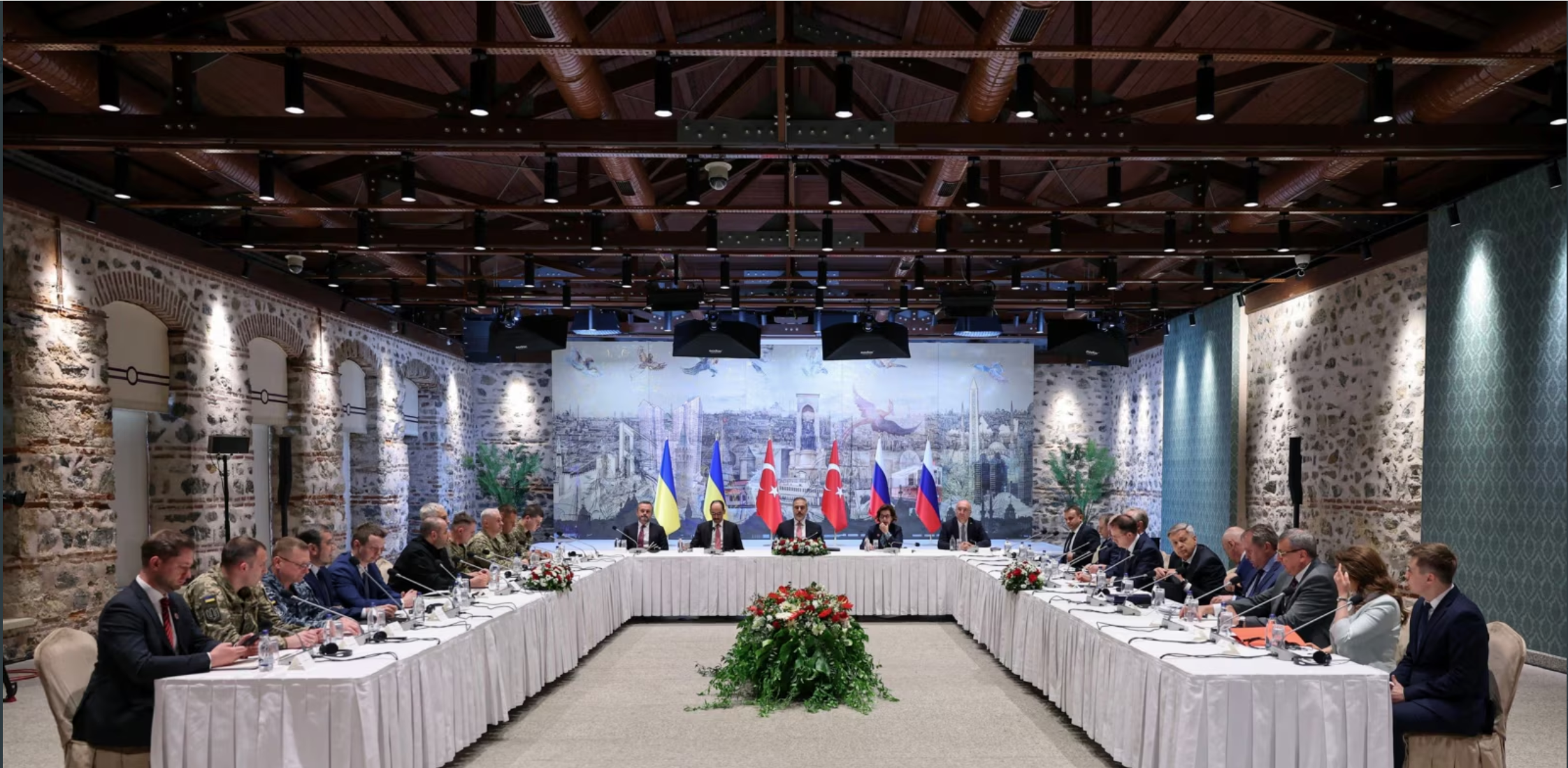
Turkish Foreign Minister Hakan Fidan (center), the Russian delegation (right) and the Ukrainian delegation (left) during a meeting as part of Ukrainian-Russian peace talks, on May 16, 2025
Europe seems to be taking the Russian dictator’s extremely aggressive stance realizes, understanding that the Kremlin dwarf can only go to negotiations when he is convinced of the lack of strength to continue the war. Therefore, the statement of the President of Finland, Alexander Stubb on May, 21 (https://yle.fi/a/74–20163283 ) on technical-level negotiations on a ceasefire and possible peace in Ukraine, which will probably take place in the Vatican next week, is surprising. Because according to the logic of modern war, negotiations should be forgotten. The topic of Russian-Ukrainian negotiations does not disappear from the geopolitical agenda. The only question is which side to lead them with the occupier? On what terms can we build relations with Putin’s Russia?
The problem of making peace between the warring parties was attempted to be formulated by Abraham Lincoln in his inaugural address on March 4, 1861: «Suppose you go to war, but you can’t fight forever, and then, after both sides have suffered many losses and neither has succeeded, you stop hostilities, and you are faced with the same old question again: on what terms to build relationships.»
As we can see, the question remains unanswered. Carl von Clausewitz also failed to offer anything concrete: «In wars where neither side is able to completely deprive its opponent of the possibility of resistance, the motives for concluding peace on both sides sometimes increase, sometimes decrease, depending on the type of assessment of the probability of future success and the necessary expenditure of effort.»
Another episode from the history of diplomatic negotiations. Less ancient. The collection «1941» ( Moscow, 1998. Vol. 2. Pp. 487–490) contains an explanatory note by the head of the Soviet foreign sabotage special services Pavel Sudoplatov to the Council of Ministers of the USSR on August 7, 1953. He said that on June 25–27, 1941, he was summoned to the office of the former People’s Commissar of Internal Affairs of the USSR Beria, who informed him that there was a decision of the Soviet government according to which it was necessary to find out unofficially under what conditions Germany would agree to end the war against the USSR and stop the offensive of the German-fascist troops. Sudoplatov was ordered to meet with the Bulgarian ambassador to the USSR, Stamenov, who, according to the NKVD of the USSR, had connections with the Germans and asked four questions in the conversation: 1. Why did Germany, violating the non-aggression pact, start a war against the USSR; 2. What would suit Germany, on what conditions would Germany agree to end the war, what is needed to end the war; 3. Would the Germans be satisfied with the transfer of Germany and such Soviet lands as the Baltic States, Ukraine, Bessarabia, Bukovina, and the Karelian Isthmus; 4. If not, what additional territories does Germany claim?
Doctor of Historical Sciences Vladyslav Hrynevych writes that at the end of 1944, in a letter to the Nazi leader J. Goebbels strongly insisted on peace with Russia (Hrynevych V. Hitler and Stalin in Search of a Separate Peace –https://zn.ua/ukr/SOCIUM/gitler_i_stalin_u_poshukah_separatnogo_miru_nerozgadana_zagadka_drugoyi_svitovoyi_viyni.html ). Japan was also inclined to the idea of the Soviet-German peace, whose representatives informed Stalin about the German terms of the armistice. 1. The USSR and Germany return to the 1939 borders along the Syan River; 2. The USSR transfers to Germany the right to control the agriculture of Ukraine with the simultaneous creation of a «German corridor» or Ukrainian autonomy in this territory; 3. Germany returns Bessarabia to Russia; 4. Odessa receives the status of a free port; 5. The Middle East, with the exception of Turkey, but including Egypt (without oil regions), passes under the sphere of the Soviet influence; 6. India – under the sphere of Soviet-Japanese influence.
As V. Hrynevych writes, after presenting these proposals to the Kremlin, Japanese diplomats stated that their country was ready to act as a guarantor of the fulfillment of the terms of the agreement. Stalin was generally in favor of signing a peace treaty. Diplomatic sources indicate that L. Beria, G. Zhukov, some other representatives of the high military command, as well as some members of the Politburo of the Central Committee of the CPSU (b).
It should be noted that during the war between Nazi Germany and Stalin’s Soviet Union, separate contacts were maintained in neutral Sweden under the roof of the USSR diplomatic mission. «One of the reports from the US chargé d’affaires in Finland referred to secret negotiations in Sweden at the end of April 1943 between the Soviet ambassador A. Kollontai and the German diplomat Thompson. According to this information, the negotiations began on April 18, lasted several days and touched on the issues of «creating an autonomous Ukrainian state as a buffer between the USSR and Germany», «achieving a separate peace between the two states and the transfer of the Baltic republics to Russia».<…> It is quite possible that it was the Ukrainian problem that became a stumbling block in the issue of concluding a Soviet-German peace and did not allow the parties to reach a compromise. <…> Despite all the vicissitudes, contacts in Stockholm between Soviet and German representatives did not cease in the future. Thus, in the summer of 1943, a high-ranking Soviet diplomat A. Alexandrov, who soon took part in a new round of Soviet-German contacts, came to the capital city of Sweden. In September 1943, the Deputy People’s Commissar of Internal Affairs of the USSR, former ambassador of the Soviet Union to Germany, V. Dekanozov came to Stockholm with the same aim. According to later admissions by the Germans, the «Stockholm negotiations» were interrupted by Hitler. (Hrynevych V. Hitler and Stalin in Search of a Separate Peace .
No war ends in diplomatic method. Diplomatic negotiations between the warring parties during a military confrontation are not advertised, their participants quietly explore ways of possible compromises. Official diplomacy comes into play when it comes to the surrender of one of the parties. The current negotiations with Putin include the consent of the Ukrainian side to admit defeat.
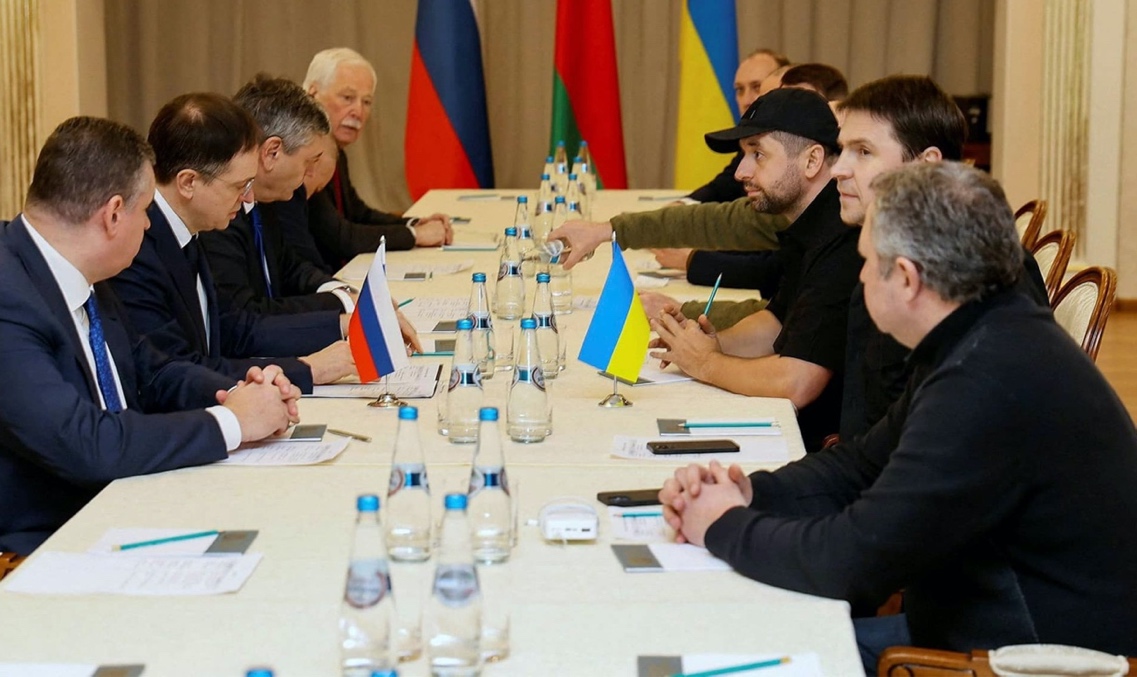
Negotiations in Belarus. March 2022.
A separate peace is a tacit surrender by one of the adversaries. No negotiations like the Istanbul ones will stop the current Russian-Ukrainian war. The war is beneficial to Putin. The regime, economy, society of the Russian Federation are militarily minded. I think if the war ends, Putin will have problems. I think both external and internal.
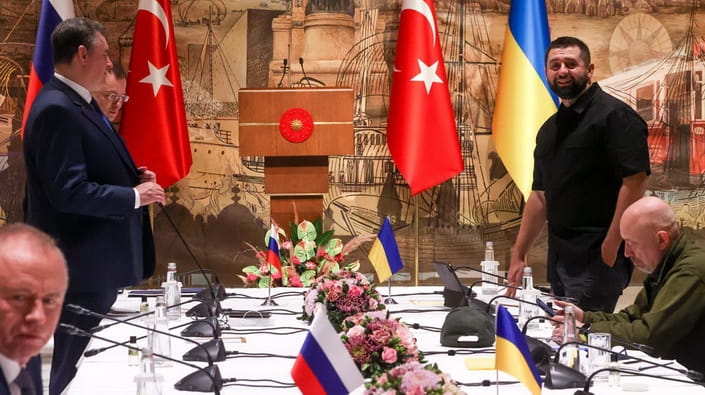
Istanbul 2022
There are many closets with «skeletons» in the office of any state foreign policy structure. Backstage and under-the-carpet strategic and tactical negotiations, political, military and economic games kept secret from the general public are traditional methods of diplomatic services. Today we can only guess about the essence of the secret meeting in Oman, imagine what was happening on the negotiating front in the interim from Sambul-2022 to Istanbul-2025, try to model unpublicized interstate negotiations at the highest level on the eve of full-scale Russian aggression. It is enough to recall the story of the still unsolved murder by SBU employees of businessman Denis Kireev (Romanchuk O. Bolivar will not stand two? – https://universum.lviv.ua/data/magarticles/files/3271.pdf)…
Let’s not forget the classics. «In war, many paths lead to the goal, and not in every individual case there is a need to destroy the enemy. The destruction of the enemy’s armed forces, the conquest of the enemy’s provinces, their temporary occupation with the aim of using their resources, enterprises directly oriented towards political pressure, finally, passively awaiting the enemy’s strikes – all these are means, each of which, depending on the specifics of the specific situation, can be used to break the enemy’s will» (Carl von Clausewitz).
Since the end of World War II, the Russian Federation as the successor state of the USSR, and Japan have not yet signed a peace treaty due to the dispute over the ownership of the Kuril Islands. On February 28, 2022, during a debate in the Japanese parliament, the Director of the European Department of the Japanese Ministry of Foreign Affairs Hideki Uyama stated that Russia occupied the southern part of the Kuril Islands, which is contrary to international law, as the attack on Ukraine is.
Russians strive in various ways press on Ukrainian society so that it agreed to a capitulation, which Ukrainian politicians are currently not openly daring to do. The Ukrainian authorities have big problems with society and the Armed Forces of Ukraine. Technical agreements on the development of the so-called conditions of peace negotiations are the development of conditions for surrender. Any negotiation contact with enemy who is on Ukrainian territory, and agreeing with him on the terms of cessation of hostilities is an agreement conditions surrender.
According to the results of a sociological survey conducted by the sociological service of the Razumkov Center from February 28 to March 6, 2025, some Ukrainians are ready to agree at least to the neutral, non-aligned, non-nuclear status of Ukraine being fixed in the Constitution of Ukraine in order to end the war – 8% of citizens in the western region , 26% in the central region, 24.5% in the eastern region, and 33.5% in the southern region.
Some interesting results are the results of a sociological survey conducted by the sociological service of the Razumkov Center jointly with the Kyiv Security Forum from April 24 to May 4, 2025. So, when asked which of the conditions do you consider to be the minimum necessary for concluding a peace agreement with Russia, the following answers were given: liberation of Ukraine from Russian troops within the 1991 borders – 39.4%; liberation of Ukraine from Russian troops along the demarcation line by the beginning of 2022 – 29.8%; I assume fixing the borders along the front line at the time of concluding the agreement – 10.8%; difficult to answer – 19.9%.
QUESTION: Do you think a military victory for Ukraine in the war with Russia is possible? ANSWERS: Yes – 60.6; no – 18.8; difficult to answer – 20.6.
QUESTION: If it were up to you, what would you be willing to give up during negotiations with Russia? ANSWERS: Ukrainian territories – 11.1; Pro-Western vector of free development of Ukraine – 4.7; None of the above – 56.9; It is difficult to answer – 17.4 .
It is noteworthy that the above answers were obtained in conditions of significant distrust of government institutions. Negative balance of trust: state officials ( – 57.0), the Verkhovna Rada of Ukraine ( – 55.1), Government of Ukraine ( – 44.3), NACP ( – 31.7), the judicial system as a whole ( – 53.8), the prosecutor’s office ( – 35.8), specialized anti-corruption prosecutor’s office ( – 31.7), Ukrainian media ( – 2.6), Political parties ( – 58.2). Positive balance of trust: Armed Forces of Ukraine ( + 88.1), SBU ( + 38.6), President of Ukraine ( + 26.7), National Police ( + 6.2).
At the beginning of the second quarter of the 21st century, the President of Turkey, Recep Erdogan, enthusiastically configured to play a mediating role to end the Russian-Ukrainian war – they say, every effort will be made to keep the channels of dialogue open and negotiations between the parties continue. The position is controversial. He is apparently not familiar with the idea of Carl von Clausewitz, formulated back in the early 19th century: «The aim of war may be the defeat of the enemy, that is, his political destruction or deprivation of the possibility of resistance, which would force him to sign any peace, or the aim of war may be some conquests near the borders of his state in order to keep them for himself or use them as collateral when concluding peace.»
What’s the bottom line? How to end the war
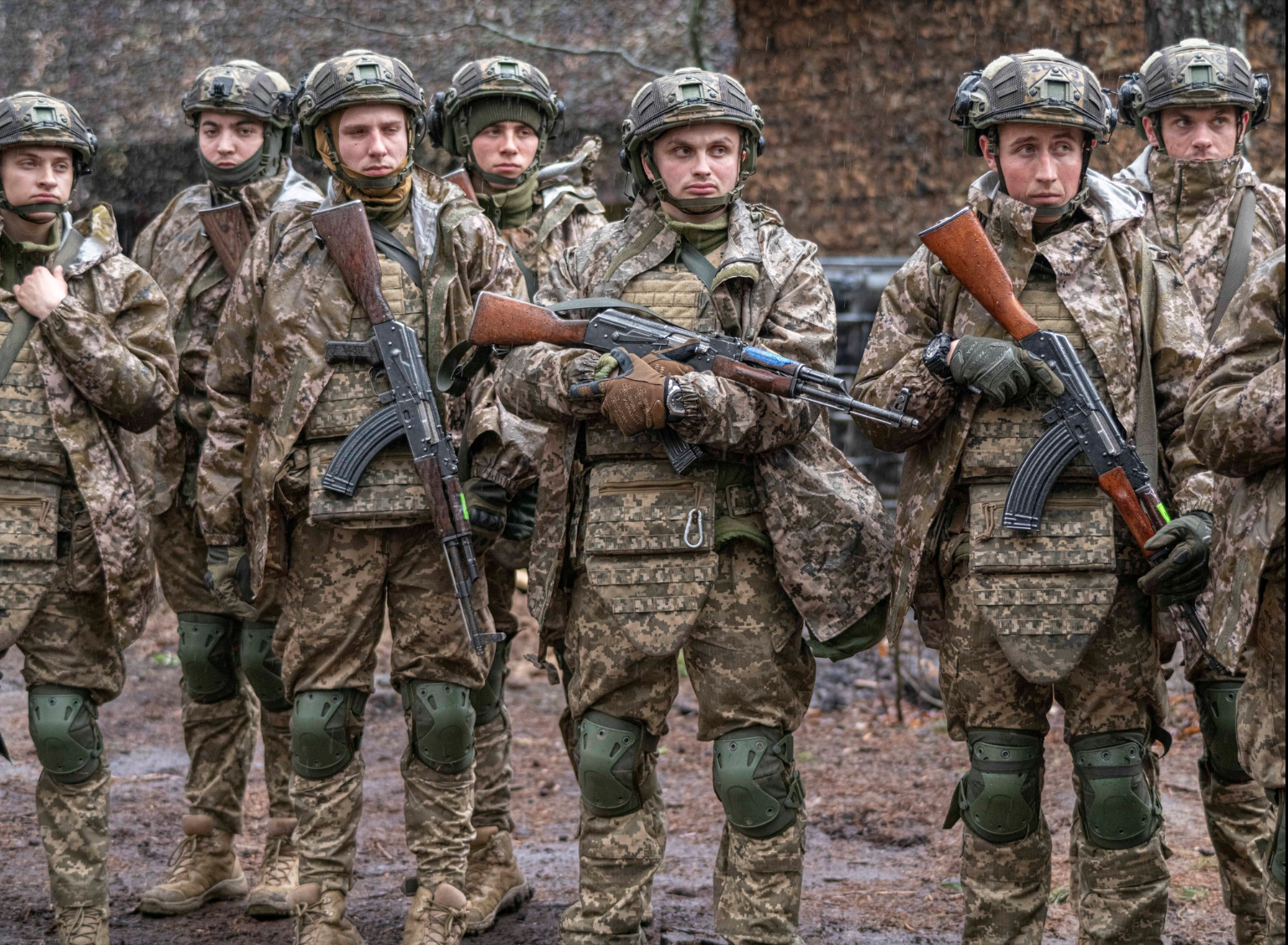
According to experts of the largest US banking holding company by assets, JPMorgan Chase & Co. (JPMorgan), there are four probable scenarios for ending the Russian-Ukrainian war: Belarusian, Georgian, Israeli and South Korean. But this is in theory. In practice, in reality, everything is much more complicated.
Let’s face it: at all times, all peoples have developed and continue to develop the theme of war: as a national conflict, as a religious, social, or moral struggle, as a glorification of bravery and courage, as a lesson in winning or risking one’s life for the benefit of one’s nation and state.
The military purposes of war were usually explained either by the need for national defense, or by the demands of national interest (economic, political, ideological), or military force was maintained in the name of military force itself. The non-military functions of the «military system» are much broader. They exist not only to justify themselves, but also to serve social goals.
Over time, war began to be interpreted as an institution subordinate to social systems, as a continuation of diplomacy, as a method of achieving economic goals, as a political phenomenon associated with resolving contradictions between states, peoples, national and social groups.
Retired U.S. Army Major General James M. Dubik, a senior fellow at the Institute for the Study of War and professor in the Security Studies Program at Georgetown University, believes that the fundamental causes of war have not changed and will never change in the near future: «1. The causes of war are stored in the human heart. Always and everywhere, hatred, envy, power, greed, and other qualities of human nature have led to wars; 2. War is a sphere of emotions. The success of war depends on emotions, since only an emotional charge makes people attack each other; 3. War is a conflict of desires of different people, nations, states, etc.; 4. War is always ambiguous. The real causes of war are often false. Everyone sees in the enemy only what he wants to see; 5. War is not only the use of force, but also the threat of the use of force; 6. War perfects the art of killing. Any military conflict led to the development, sometimes incredibly rapid, of military technology and military art; 7. War is a continuation of politics by other means (Dubik quotes Carl von Clausewitz); 8. War has its own logic. Having begun, war acts according to its own laws and forms new laws. It radically changes the lives of warring countries, peoples and people; 9. War lives in collective memory. People unconsciously evaluate the world based on the experience of previous wars; 10. War can end in only two ways: by a decision to end it or by the complete exhaustion of the warring parties.
Today, Ukraine is essentially responsible for the security of the European continent. Because this is not a local conflict, but a Great War of Europe. Its future is primarily are shaping events on the Russian-Ukrainian front, where the Armed Forces of Ukraine are facing many problems. Despite promises from France, Germany and Great Britain to support Ukraine, Kyiv’s most powerful ally is changing course. Further US military assistance, including Patriot air defense systems, Starlink internet service and intelligence data, remains in question.
Putin is preparing for war in Europe. The Russian Federation is building up troops in the northern direction. And there are about 500–600 thousand soldiers. Old military bases are being restored, warehouses are being built, and training is being conducted. Main targets: Norway, Sweden, Finland, Estonia, Lithuania, Latvia…
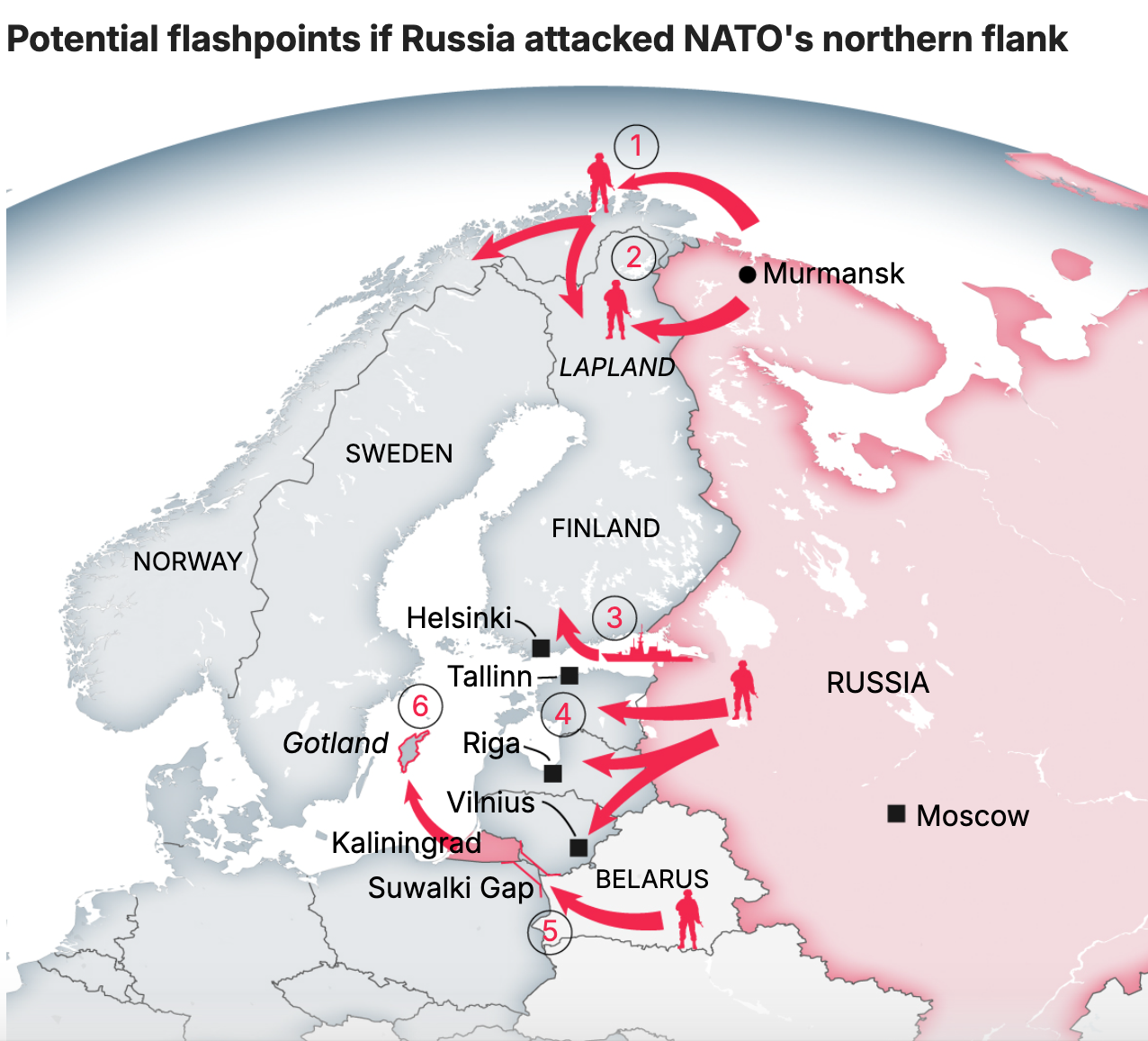
The head of the CIA , former Director of National Intelligence of the United States, John Lee Ratcliffe, revealed at a congressional hearing that Ukrainians unbreakable will to resist: «I believe that they (Ukrainians. – O. R.) will be under any circumstances to continue fighting. Such recognition of the determination of Ukrainian society Confronting the enemy can play a positive role in communicating with American society and its exalted president. Trump’s business negotiations with the Kremlin dictator a priori cannot be effective. They have a different nature, other motivations.
Ukrainians need to prepare for a long war. The entire society must be mobilized. Unfortunately, since the beginning of the full-scale invasion, 49 thousand men have been detained in border areas and at checkpoints, trying to illegally cross the Ukrainian border. Who are they? Cowards-«evasive»? Traitors? After their detention, they staffed 6–7 brigades?
The authorities must use all their power to mobilize political will for in order to win at the front. Perhaps the time for the Savior of the Nation has come – in the Ukrainian State there is a lack of an effective, patriotic military-political leadership, a lack of mobilization of the economy, a lack of budget priorities. The country is full of money. The paradox is that it is used inefficiently. Citing the Financial Times, Censor.NET writes (https://censor.net/ua/news/3552569/provalni-oboron... ) that since the beginning of the full-scale Russian invasion, Ukraine has paid about $ 770 million in advance to foreign suppliers for weapons and ammunition that were never delivered. In 2024, the National Anti-Corruption Bureau of Ukraine found itself at the epicenter of a high-profile scandal: the bureau «spent» 1.9 billion UAH, and has returned to the state only 823 million. The conclusion of the international auditors is shocking: the institution should not be reformed, but closed. And this is not the only problem. The commission recorded chronic leaks of information from National Anti-Corruption Bureau of Ukraine in criminal cases. Strange deals are taking place within the structure of the Ministry of Defense of Ukraine, the suspicions are raised against the leadership of the The National Guard…
Let’s face it: the struggle with corruption in the state is mostly imitated. Many peaceful peace budgets are spent unnecessarily – on improvements, new constructions, etc.
The presence of weapons makes it possible for states and nations to survive. The absence of weapons implies the elimination of sovereignty. As Napoleon once said, to wage war I need three things: first, money, second, money, and third, money.
We must defend democracy – the Kremlin has clearly stated that it will fight until Ukraine surrenders. So our existential strategy must be to destroy the enemy. We need to orient ourselves at the worst – the scenario of waging war is when the civilized world will no longer help, and we will be left alone with the Putin heresy. We must use the experience of Israel –no one wanted to help it at the beginning of the emergence of this state. So our very first task is to solve the problem of domestic production of a sufficient number of weapons. Today, a NATO shell costs 10 times more than the PV drone, which can destroy an expensive tank.
«The enemy’s armed forces must be destroyed, that is, brought to a state where they can no longer continue the fight. The territory must be conquered, because it can become a source of new armed forces. But even after achieving both goals – the destruction of the enemy’s military forces and the capture of the territory – the war (hostile tension and the action of the enemy’s forces) cannot be considered to have ceased until the enemy’s will is broken, that is, his government and allies are forced to sign peace or the people are subdued, because even when we completely take possession of the enemy’s country, the struggle can flare up again within the country or with the help of the enemy’s allies outside its borders» (Carl von Clausewitz).
We need to figure out by our power, which has listen to the demands of society. «Unfortunately, the Ukrainian people, even during the war – a war for survival as a people – did not choose a Warrior or even a military man; we must understand that Russia’s war with Ukraine will be to the end – either we surrender (dissolve-assimilate), or we will win» (Vasyl Laptiychuk , Director of the Institute of Russia).
What happens when there is a shortage of infantry at the front, when there is no effective recruiting, and reliable defensive structures are not built ? The army is needed to turn into the best employer, who takes care of the soldier, who equips him well, well pays. It is necessary to restore the Main Military Prosecutor’s Office of Ukraine, to form military police units. It is necessary to establish an effective social elevator for military personnel, primarily for officers and sergeants who have experience and who enjoy authority among their subordinates. And it is also necessary to develop local government, which during war works more effectively than any executive central bodies, to reduce a bloated apparatus of officials, and the released funds should be directed to their maintenance in the military budget .
How will the West see that Ukraine is changing, that its leadership is effective, that society is set up defeat a racist country with nuclear weapons – it will join those who wants and can win.
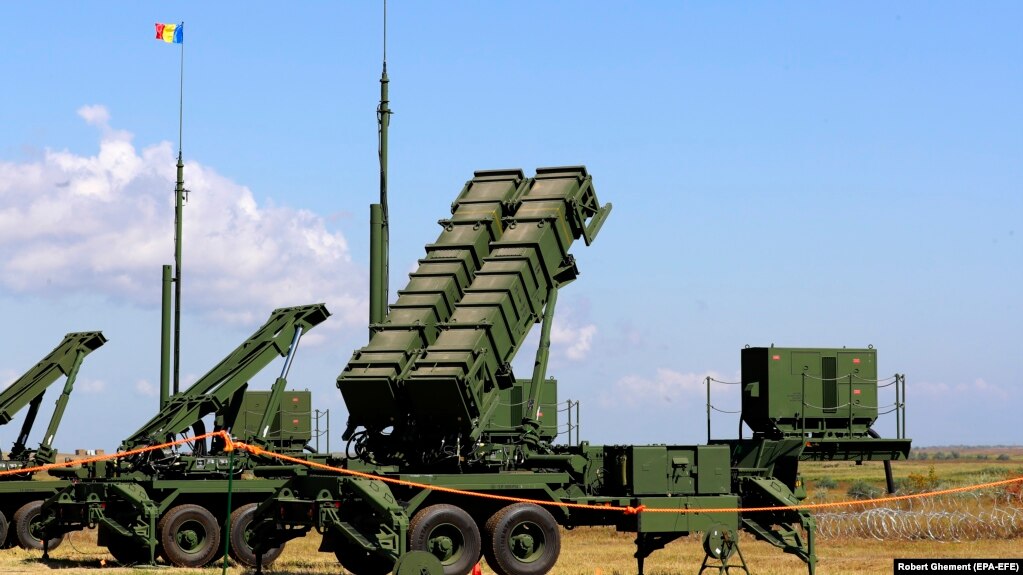
We definitely lack systems such as the Patriot anti-aircraft missile system (at least 30 systems are needed) to cover the main basic strategic objects. Why do not offer Americans to place these air defense systems on the territory of Ukraine? American crews who will not directly participate in combat operations, will operate complexes and will only protect the civilian population. At the same time, this is the best way to train «GI» military air defense units, which will not create any standmitator.
During war, unforeseen situations arise, a new moral climate is created, in which there is no place for the bored, the tired, the rich and the poor. During war, those structures that undermine/ eat up society freeze or do not manifest themselves. War performs a stabilizing function both within society and in relations with other states-communities.
In 2022 Putin’s blitzkrieg was defeated. Since then, the war has transformed into a struggle for attrition. And in it, the advantage always has the state with the largest population, largest economic potential, and largest territory. Russia is currently coping with war alone. The help of China or North Korea is incomparable with the technological and financial assistance to Ukraine from Western countries. For Putin ‘s Moscow, there are no such challenges and risks that have arisen before the Ukrainian State. The main task for Russians is to destroy Ukraine and its identity. Putin’s сщьpatriots are set on exactly such an ending to the Russian-Ukrainian confrontation.
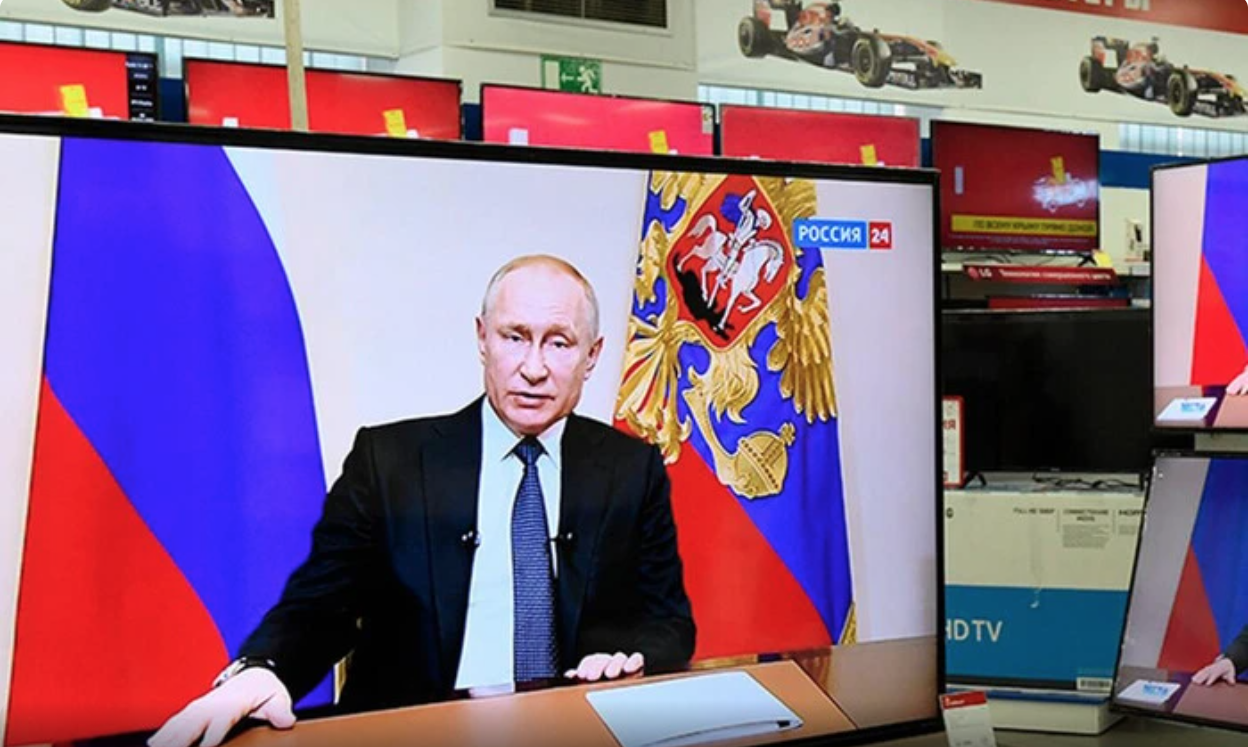
Direct negotiations with the Russians is a trap for Ukraine. We need to forget them for a while. Retrenchments are currently extremely dangerous for our statehood. No matter at what representative level Ukrainians negotiate with the heresy, its political leadership will constantly demand Ukraine’s surrender. Contacts with the occupiers are appropriate only in the context of establishing an effective mechanism for reparations, compensation for moral damages, and exchange of prisoners. Those who stubbornly want to enter into negotiations with enemy the Ukrainian counterintelligence should be interested in.
If it weren’t for help the civilized world , Ukraine would lose the war. The level of support from the West will determine the possibility of Ukraine’s resistance and survival in the future. In case of defeat, Ukrainians will lose EVERYTHING. The history of the Ukrainian people on his ancestral lands will end.
«There are no permanent friends and no permanent enemies, only permanent interests,» – Winston Churchill rightly said. June 5 marks the end of EU trade preferences for Ukraine, which have helped support the Ukrainian economy since 2022. Polish Prime Minister Donald Tusk said that the European Union will not continue duty-free trade with Ukraine. Against the backdrop of uncertainty about military support from the United States (Biden’s military aid package runs out in summer, and no new arms supplies are currently planned), this could lead to negative consequences for the Ukrainian economy.
Decision on Ukraine may be influenced by the position of Congress and US public opinion. However, returning to the US Congress with a call to continue armed support so far is not allowed to enter the meeting hall of the Verkhovna Rada.
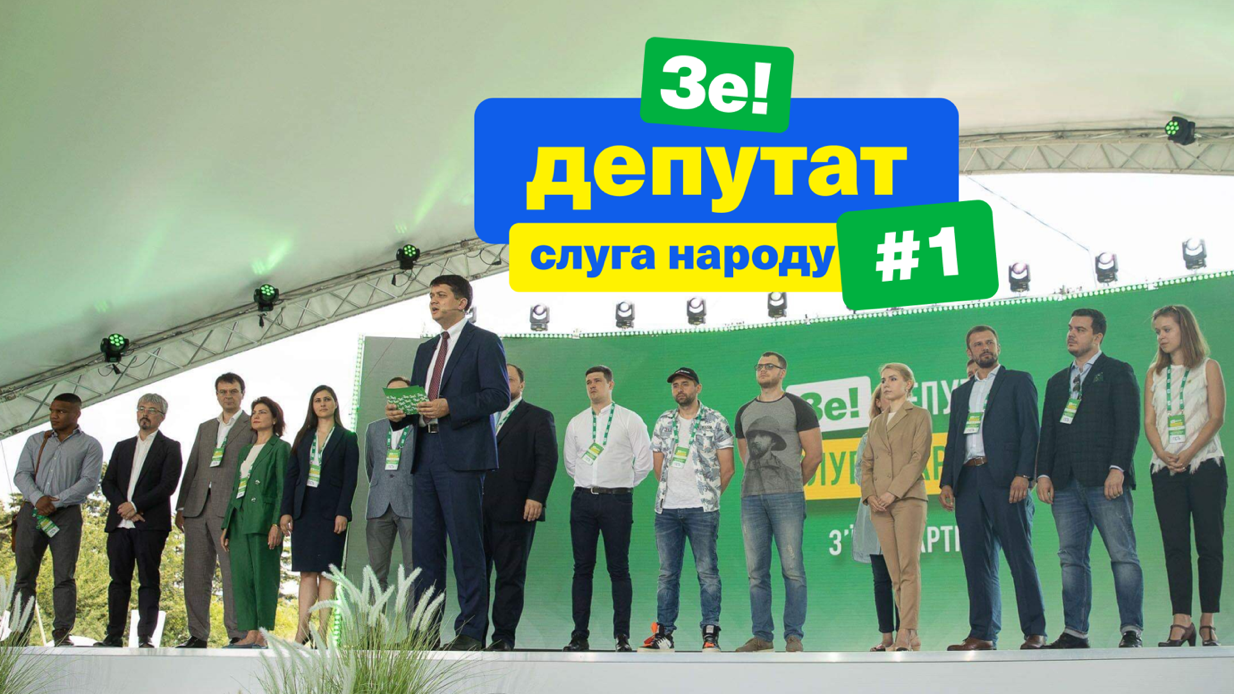
In 2022, Ukrainian society and the Ukrainian military did not accept the signing of surrender documents in Istanbul. So Moscow began to blackmail civilians with terrorist attacks, using cruise and ballistic missiles, suicide bombers, guided bombs….
The main agenda for the Ukrainian state should be the restoration of territorial integrity. At the same time, according to the former commander-in-chief of the Armed Forces of Ukraine and current Ukrainian Ambassador to London Valery Zaluzhny, we should not hope for the return of the 1991 borders, since the Russian Federation has the resources to continue the war. Winning this war is possible only through the complete destruction of Russia’s ability to wage combat operations, believes Zaluzhny: «I mean the destruction of its military-economic potential, first of all. In our modern conditions, and for us this is a huge shortage of human resources and a catastrophic economic situation in which we find ourselves. We can only talk to you about a high-tech war for survival, where a minimum of human resources, a minimum of economic means are used to achieve maximum benefit. Ukraine is not capable of another war in the conditions of demography and economy and should not even think about it.»
We need to put law enforcement officers in line, remove their armor, and remove half of their personnel. The Ministry of Internal Affairs should be directed to the Armed Forces of Ukraine, and a law should be passed to adopt a law on civil service only for those citizens who served in the military. Stop the plunder of the state treasury. Set realistic, non-exorbitant salaries for officials, heads of state-owned enterprises, and members of supervisory boards, which during wars are causing outrage among citizens. The Armed Forces of Ukraine lack 400 billion UAH. This year, the state budget deficit for financing the needs of the defense forces may reach 500 billion UAH.
Therefore, Petro Poroshenko’s proposals to apply a number of sanctions against Russia from June 1, voiced in the Verkhovna Rada on May 21, look more than right: «First, adopt the 18th package of EU sanctions, synchronizing it with the hellish US sanctions, against Russian oil products and energy with a decrease in the price level. Also introduce secondary sanctions of up to 500% against those who buy Russian oil and increase pressure on the shadow fleet of Moscow. And sanctions against the Russian banking system, which will ensure its paralysis. Moscow must stop receiving revenues from oil exports. All this is necessary so that Putin cannot finance the war and is forced to return to negotiations on the terms of the West and Ukraine. Secondly, sharply increase arms supplies to Ukraine. Third, the US Congress should adopt a financial aid package synchronous with the EU based on Lindsey Graham’s bill.
In September 2024, this Republican senator (an associate and close friend of the late Senator McCain) openly spoke about the existing US interest in Ukrainian subsoil: «Ukrainians do not want American troops on their land. They just need weapons, they just need weapons, they just need weapons, and to force peace. Do everything in our power to limit Russian exports, including the operation of the infamous Druzhba oil pipeline. When we talk about «peace through strength,» we mean the strength of the Ukrainian army. Therefore, we must sharply increase funding for the Armed Forces of Ukraine, in particular, personal income tax directly to brigades and the purchase of weapons, and redistribute the expenses of the State Security Service of Ukraine, the shameful telethon, and Energoatom.
A vast political field is opening up for diplomatic and informational activities. The Ukrainian state should not hesitate to invest considerable funds in its development.
In fateful situations, society must mobilize its collective pragmatic mind and, having rejected emotions, become rational and pragmatic. We must realize that the war is for a long time. For decades. We have no choice. We have nowhere to retreat. The entire people cannot emigrate. We have no other land. The issue of war does not depend on Ukrainians. Israel was in a similar situation at the beginning of its appearance on the political map of the world and which has continued to be in a state of war for over 70 years. Despite this, Israel feels confident among the most developed countries on the planet. The Ukrainian state needs urgent re-establishment, taking into account the real factor of a long-term war with Russia.
Instead of an afterword
On May 27, on Fox News (https://www.foxnews.com/video/6373509907112), the US President’s special envoy for Ukraine, Keith Kellogg, said: «We received a list of conditions for a peace agreement from Kyiv, and we must receive them from Moscow». According to him, after the US receives the two documents, they will be combined: «Put them together. And ask the question: where can we find a common ground to bring everything together? And when we receive their (Russian. – O. R.) «urgent plan» or memorandum, then we will draw up a joint version, and another meeting will take place».
It is very interesting what exactly is being said in this document. Who exactly sweated over writing the text? Is international law at least somehow mentioned in this secret agreement? For example, about returning to the 1991 borders, about reparations, about de-Russianization... Doubtful.
A logical question arises: what «terms of the peace agreement» did the leadership of the Ukrainian state agree to? What common ground can there be with the enemy who occupied part of the territory of our state? Isn’t it a banal textual «fish» – a draft act of surrender? And finally. When will the Ukrainian authorities dare to inform their people about the «terms of the peace agreement» with the Russian Federation?
Oleh K. ROMANCHUK


